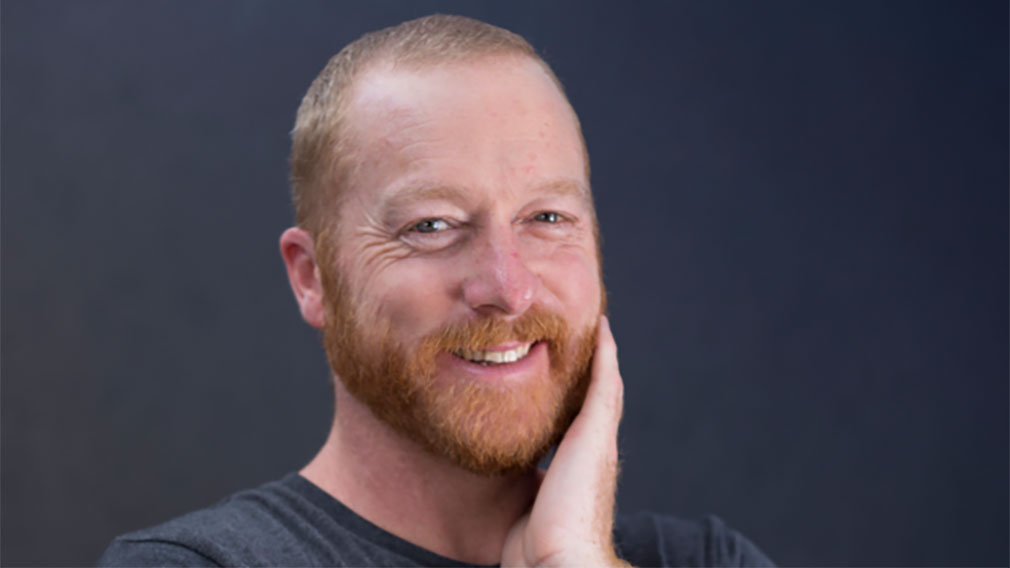Tackling tradies’ mental health, one bacon and egg roll at a time

Jeremy Forbes. (Supplied)
Workplaces that support the mental health of their staff will see the benefit in terms of better productivity, but many are not doing enough, says mental health advocate Jeremy Forbes.
Forbes founded HALT Australia – which stands for Hope Assistance Local Tradies – in 2013 following the death by suicide of one of his close mates. The registered charity provides resources to tradies who might be struggling with their mental health.
While there has been some improvement in raising awareness about the issue since he started HALT, there’s much more to be done, Forbes says.
“It’s not changing quickly enough and companies aren’t being responsible enough. Box-ticking exercises like holding a morning tea once a year just aren’t going to cut it,” says Forbes, who in 2016 was awarded a Westpac Social Change Fellowship for his work with HALT.
Companies should be doing more to implement mental wellbeing programs, while larger organisations need to consider hiring professional staff such as qualified psychologists to better support employees.
“Businesses are potentially hesitant because they’re worried about what it might trigger in their workforce, but the power of a good program in generating goodwill and gratitude among employees cannot be under-estimated,” Forbes says.
“There’s also a financial impact to this – a mentally healthy workforce performs better.”
The mental health challenge we face as a society isn’t going away. If anything, it’s getting bigger.
More than eight Australians die every day by suicide, according to Australian Bureau of Statistics data - that’s more than double the number who die in road accidents, while 75 per cent of those are male.
Tradies are particularly vulnerable, says Forbes, recording above average rates of suicide and mental health stress.
They can face the same financial or relationship pressures as anyone else, and many turn to alcohol, drugs or gambling to help them cope. But there’s more to it than that.
“It’s about culture,” he says. “As tradies our usual response when a mate confides in us that they’re struggling is: ‘you’ll be right, toughen up, get over it’ - that sort of thing. Has that ever helped a single person? Not once.”
Many tradies go through high school and TAFE without having been taught how to talk about their feelings. As a result, when faced with life challenges, the pressure often starts to build inside their heads.
A certified painter and decorator, Forbes has first-hand experience of the tradie culture that can leave many feeling lonely and isolated when dealing with difficult emotions.
That understanding has helped to shape HALT’s education programs, which are designed to create safe spaces for tradies to begin to open up about what they’re going through emotionally. For example, the popular “Save Your Bacon” sessions, often hosted at the local hardware store, encourage them to start up a conversation over one of their favourite things: a bacon and egg roll.
Scholars impact
Forbes credits the Westpac Scholars program for helping him to expand his network and collaborate with like-minded social changemakers. As part of the program, he visited organisations in the UK who are tackling tradies’ mental health, as well as presenting his own TED Talk.
“We’re so proud of Jeremy’s immense personal and professional growth since he was awarded a Fellowship in 2016,” says Amy Lyden, CEO Westpac Foundation and Scholars. “He has wholeheartedly embraced the support of the Trust and the W100 Network throughout his journey and is delivering huge impact within the community.”
Westpac Scholars Trust has just awarded its 100th Social Change Fellowship, with the latest cohort working in areas including disability support, Aboriginal and Torres Strait Island inclusion, women and youth at risk and mental health.
Forbes is partnering with another Scholar alumni, Marion Wands, to deliver her “Conversations for Life” program. The focus is on early intervention and prevention, using real-world examples to help people better understand and manage their mental health and build resilience.
Jeremy pictured with fellow Westpac Scholar Marion Wands. (Supplied)
Forbes is keen to share the message with anyone who will listen, from workers on construction sites and at council depots to project managers and boardroom executives.
“It’s the supervisors and managers on-site that have to deal with these issues – so it’s important that we also educate and support them.”
As for the future, Forbes acknowledges that securing funding for HALT can sometimes be a slog, but he’s determined to continue his work in raising awareness of the mental health challenges faced by tradies and the wider community.
“I want to get more versions of me and more mental health programs out there in the community, because it’s all about community and connections. We need people doing this work to be embedded in their communities.”
Westpac Group is committed to supporting the mental health and wellbeing of its employees, offering a range of online resources as well as an Employee Assistance Program which includes the option of face-to-face meetings with a counsellor.


